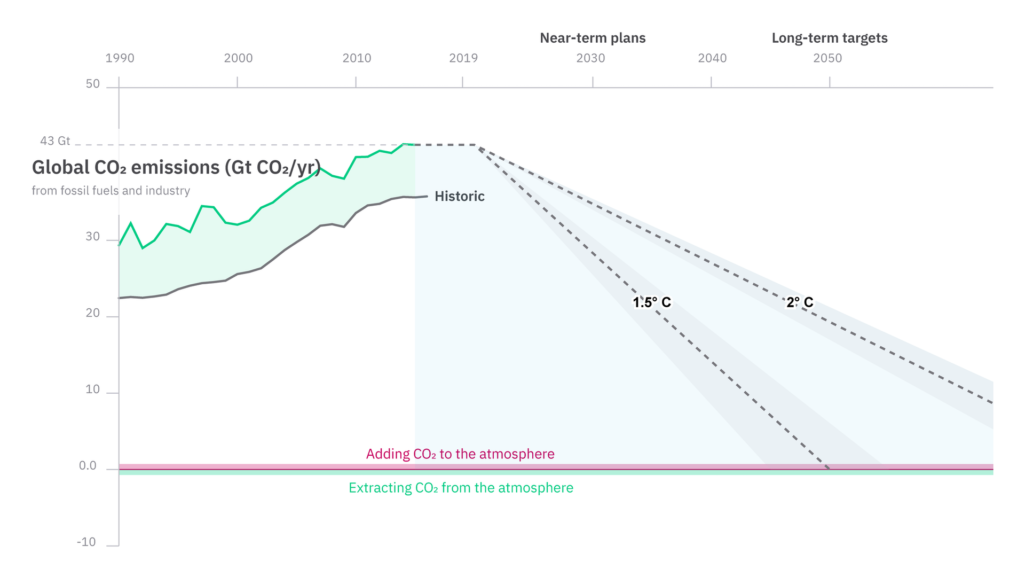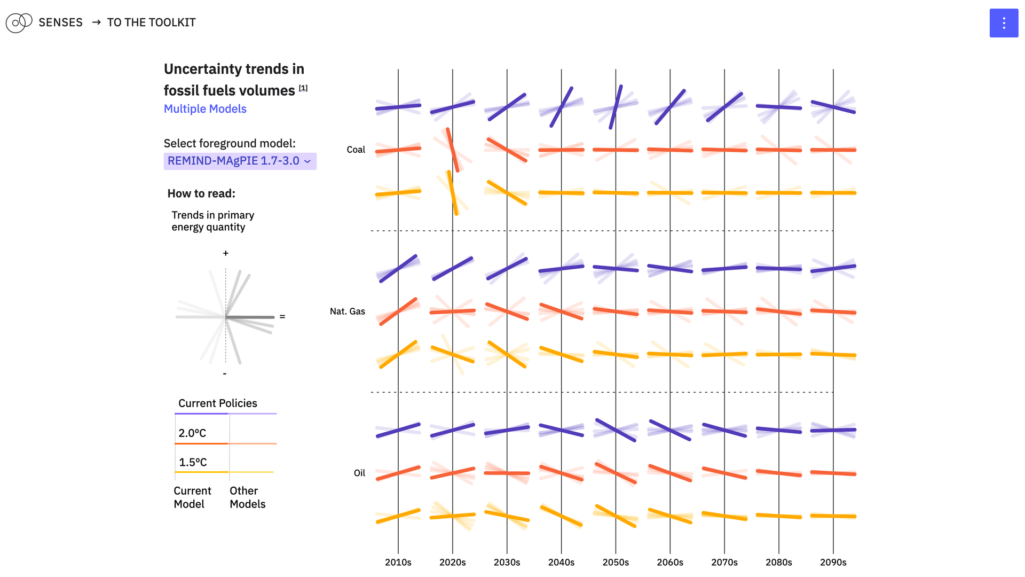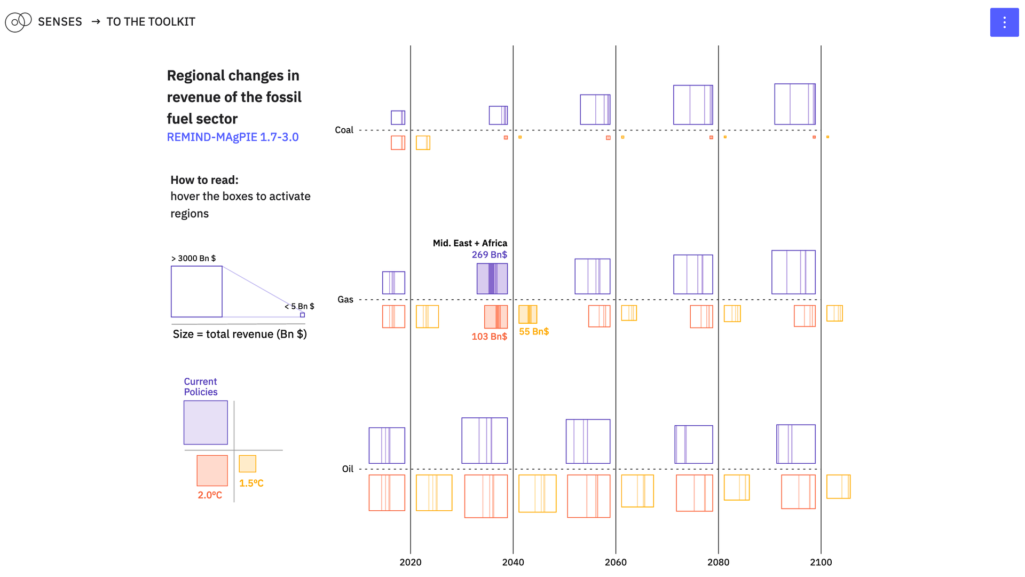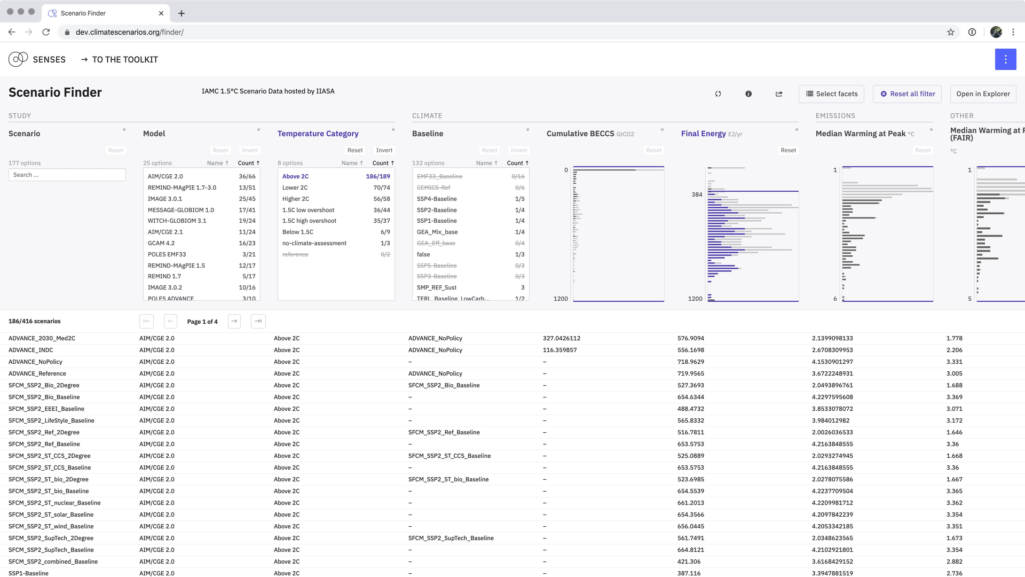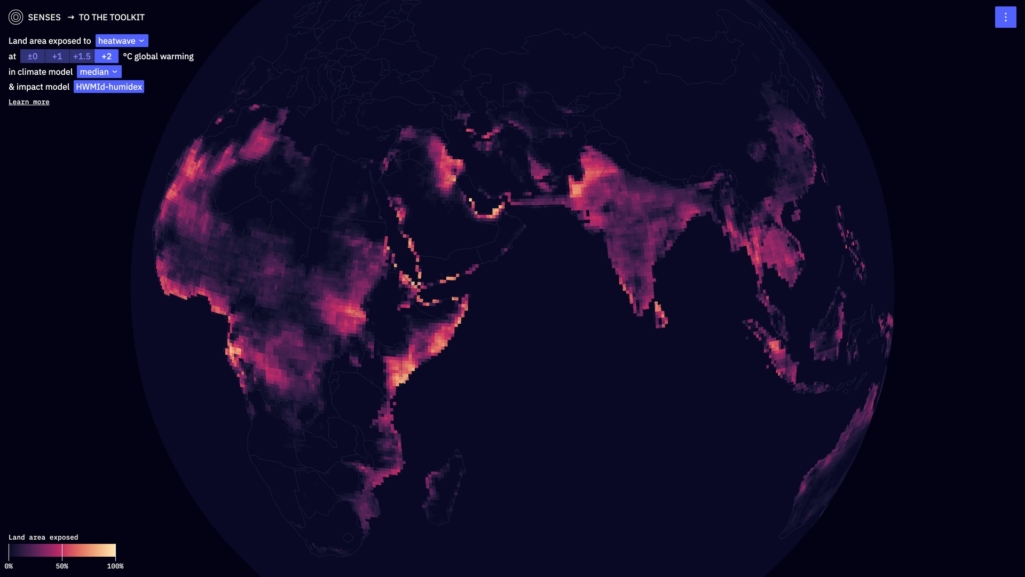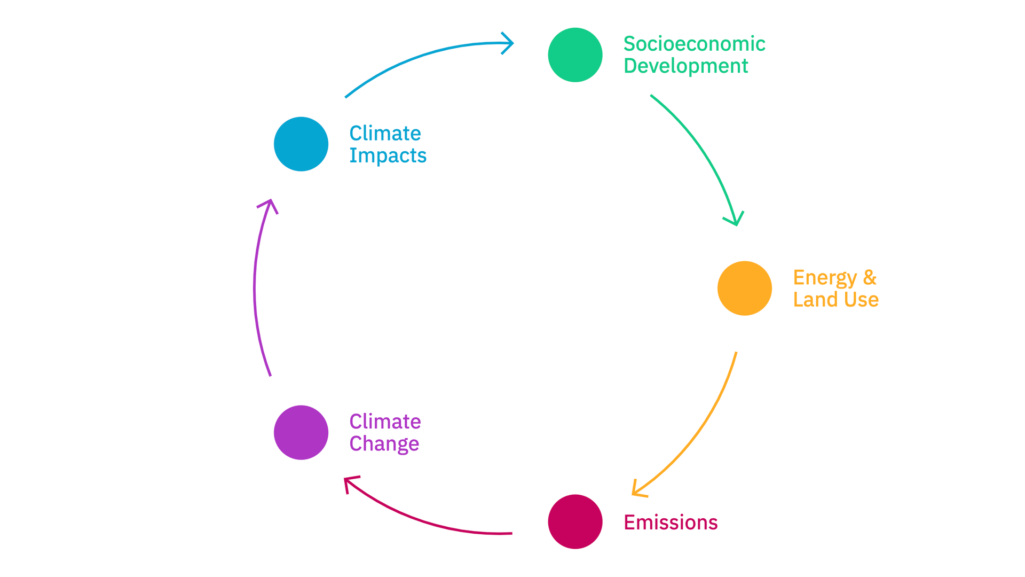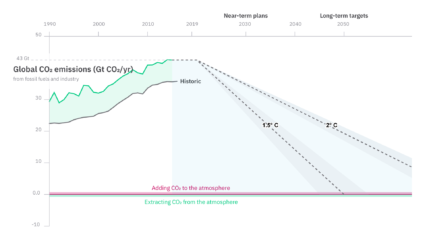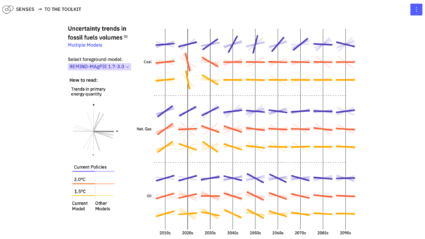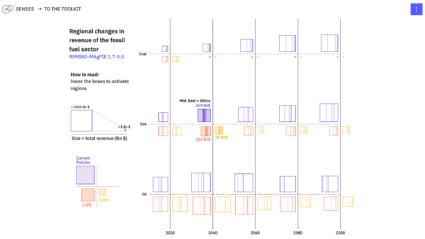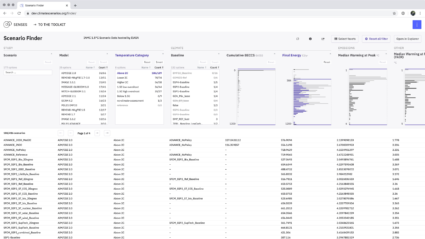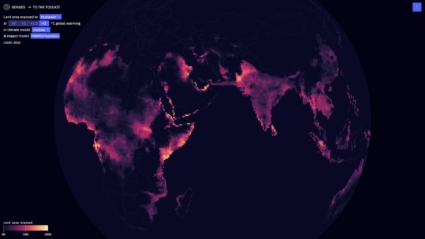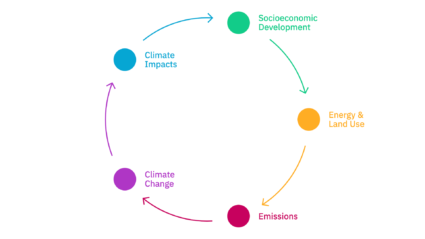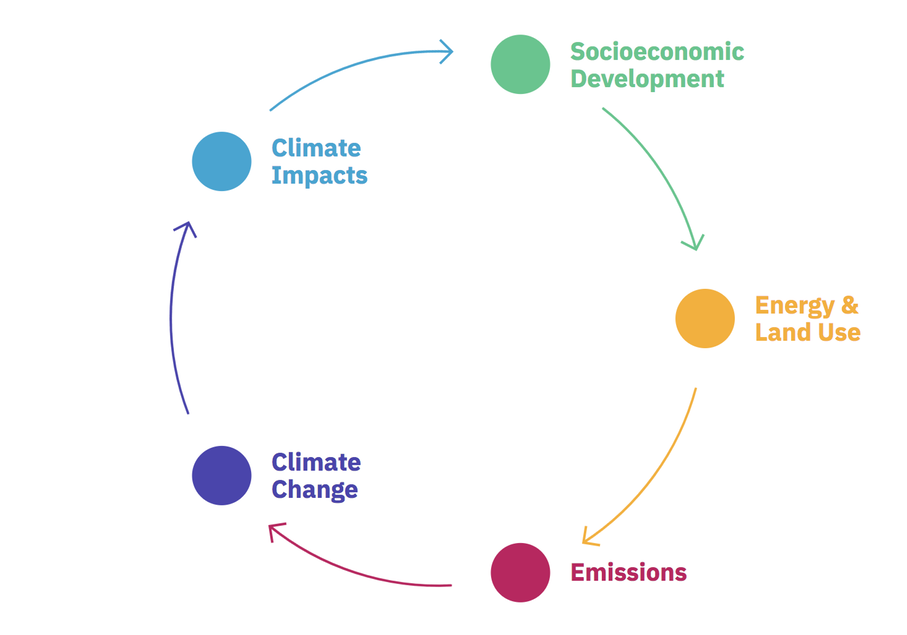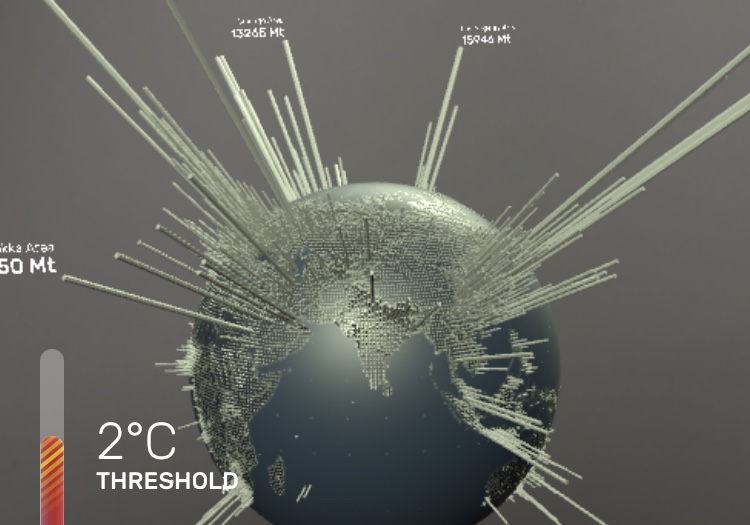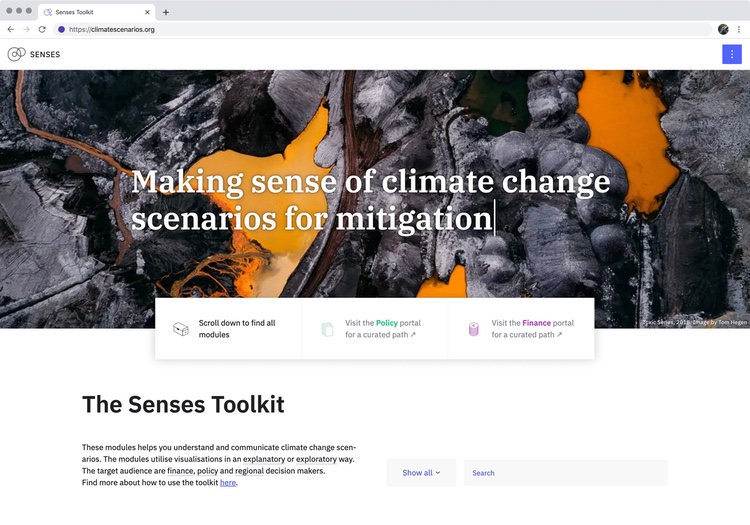SENSES Visualization and Communication of Climate Change Scenarios
The overall aim of the SENSES project is to make climate change scenarios more accessible, understandable and actionable by using advanced interactive visualisations. Instrumental for this is the SENSES Toolkit.
The SENSES Toolkit is an evolving web platform that bridges the gap between a basic knowledge of climate change and an in-depth understanding of climate change scenarios. We specifically address demands from both policy and finance audiences.
In the SENSES Toolkit, users can find climate change scenario visualisations, practical guidelines and interfaces for data exploration. Conceptually, the Toolkit consists of three different ways to interact with the content: learn, explore and share.
- Learn modules make use of interactive data visualisations and explanatory text to introduce the user to the use of scenarios. Learn modules can be either scrollytelling, click through modules or single data visualisations depending on the format that better supports and conveys the content.
- Explore modules are aimed at more advanced users and offer the possibility to explore scenarios freely with no or little guidance.
- Share functionality enables the users to download data and visualisations under a Creative Commons license.
Process
Throughout the SENSES project, we collaborated closely with stakeholders from policy, business or finance backgrounds. We conducted a number of co-design workshops that helped us to understand the demand for climate change scenarios in the respective fields.
This process enabled us to create a modular and user-centred design concept for the SENSES Toolkit. Using data visualisations that turn abstract data sets into insightful images is an essential strategy for addressing the requirements and workflows of our stakeholders.
Our aim is to make research on climate change scenarios more accessible and useful by creating innovative data visualisations and data narratives.
Climate Change Scenarios
The SENSES Toolkit and the overall SENSES project relies on three columns of input data:
- Climate change projections are projections about different components of the climate system to the future. They provide information (e.g. temperature, precipitation, extreme events) on how the climate system would evolve for specific preconditions, e.g. level of CO2 concentration.
- Climate impact scenarios are scenarios about potential impacts of climate change. They take into account various affected sectors like the water, agriculture, fisheries, marine ecosystems, coastal infrastructure sectors.
- Mitigation scenarios: These scenarios are meant to describe possible solutions to mitigate climate change. They delineate possible futures about the development of energy, economy, land use and emissions in the world, which are constrained by the fact that the global mean temperature will not exceed an explicit increase (e.g. 2 ° Celsius).
The consortium:
The consortium of the SENSES project has internationally recognized expertise in climate change scenario research and design and visualization techniques, and large experience in working with the user groups targeted in this project.
- Potsdam Institute for Climate Impact Research
- International Institute for Applied Systems Analysis
- Stockholm Environment Institute
- Wageningen University & Research
- University of Applied Sciences Potsdam

